Niche, Obscure, or Arcane Areas of Interest
Here are some of mine. What are yours?
(Aydin Aghdashloo - Enigma V, Enigma VI - 2009)
When I was younger, it took me some time understand the importance of why others would attach significant value to, and devote a lot of time talking about, things that they cared about; things that were not very popular with the broader public. Being a curious type, this naturally led me along many different paths of research ever since. It’s through these paths that I ended up in many places that are niche, many others that are obscure, and still more that are quite arcane.
By going down these paths, I learned quite a lot that I am certain helped me understand others much better than I once did (if I understood them at all). In some cases, I gained an appreciation for that which I was learning about. In other cases, it would change my thinking about certain subjects. Sometimes they would reinforce my existing beliefs. What they all had in common was that I ended up learning something new.
Not all learning is practical. Most of what I researched was in no way applicable to my life when I was investigating it. This means that I would make for a very poor Benthamite utilitarian, as I enjoyed learning for learning’s sake.
Being Gen-X must feel like being a Frenchman or Frenchwoman born in the 1760s or early 1770s, having lived long enough through late Bourbon France, and then experiencing the French Revolution (and what followed it), as we can remember a good chunk of our lives being pre-internet. For people like me (and many of you as well), the ability to tap into so much information at a few keystrokes was overwhelming, to the point of paralysis. At the same time, many of us would discover that our interests weren’t as rare as we assumed that they were. There were many other people around the world thinking about the same subjects that we were. We could now finally connect to one another, and form online communities to discuss these topics to the point of laser-like obsession, for better or for worse.
The subjects which I write about on this Substack are those that I am best known for. At the same time, they are only a small part of my overall list of interests (think: Iceberg Chart). So without further ado, here are some of my niche, obscure, and arcane interests for your reading pleasure. This is just a cross-section, and nowhere near a comprehensive list. For those of you who are brave enough to do so, I request that you share some of your interests that fall within one or more of these categories in the comments section below.
Niche
The Marx Brothers
If you were a kid in North America in the early 1980s, your Saturday mornings were spent watching cartoons. They TV stations broadcasting them would augment the lineup by inserting old comedies that were cheap to obtain through distribution packages. Our Gang/Little Rascals was a favourite of mine when I was very, very young, as were The Three Stooges (I have wonderful memories of watching my father laughing uproariously alongside me as we would watch them together). As I got a little older, I began watching Abbott and Costello, because I could finally understand some of what they were talking about.
The Marx Brothers were easy for young kids to get into; you’d wait for a Harpo scene and enjoy the physical comedy. You would not be able to get the jokes and references that Groucho made, but you instinctively knew that they were funny. Eventually, you would get them, adding another important layer to your appreciation of their movies.
Harpo and Groucho continue to be the most popular of the brothers for those remaining fans of their movies, but I am a Chico Loyalist: ethnic humour combined with with constant scheming, often for no good reason whatsoever. Plus, he was the oldest son of the five brothers (Zeppo and Gummo are the other two), something that I can relate to (I have less than four brothers).
My deep interest in the Marx Brothers is like a Matryoshka doll inside of two larger Matryoshka dolls. The Marx Brothers are a subset of my interest in early Hollywood, and also in turn of the century New York City, particularly with respect to how all those new immigrants from Italy and Eastern Europe changed the city, one then already full with recent and somewhat recent Irish arrivals, still older Germans, and the founding population of Dutch, English, and Scottish colonists. Their story is the story of the first half of 20th century America: arriving with nothing, working as hard as possible, and succeeding beyond their wildest dreams.
The great thing is that I still enjoy watching their movies to this day. I have an interest in the history and culture of the Delta Blues and early Country & Western music, but I do not enjoy the music itself. The music of these genres to me is a historical curiosity, not entertainment. The Marx Brothers still deliver entertainment to me upon repeated viewings of their peak era, from 1929’s THE COCOANUTS (their first movie), to 1937’s A DAY AT THE RACES. I simply find them funny and a joy to watch, from the slapstick humour to Groucho’s million-mile-an-hour wisecracks (many of which were penned like a Who’s Who of 1920s and 1930s writers e.g. George S. Kaufman, the inspiration for John Turturro’s character in the Coen Brothers’ BARTON FINK). One of these days, I will write a very, very long essay on them.
Baby Boomers might not consider the Marx Brothers as a niche subject, but I think that the case that they are is a good one. Anecdotally, I have never met a Marx Brothers fan of my generation in person.
recently wrote a very interesting piece in which he argues that that even huge stars have a celebrity life of roughly 80 years (coincidentally almost the average lifespan these days in the USA), using data to buttress his claim.The Marx Brothers never made a good movie after 1937, with their last proper one being 1946’s A NIGHT IN CASABLANCA (I do not count LOVE HAPPY as being a proper MB movie as their roles are much smaller than usual). If we apply Ted Gioia’s 80 year timespan for relevance, it means that fans of the Marx Brothers are pretty much gone. An exception can be made for Groucho Marx, as he went on to additional fame thanks to hosting the wildly popular 50s quiz show YOU BET YOUR LIFE, and was brought back into the mainstream on TV thanks to a baby boomer-led revival of the Marx Brothers movies around 1970 (by that point both Chico and Groucho were dead).
The Marx Brothers are a case of popular-to-niche.
Human Genomics
An example of an interest headed in the opposite direction of The Marx Brothers is human genomics. This scientific field has experienced an incredible revolution since the human genome was decoded. Granted, this has led to an explosion of interest in DNA testing with millions of people, but almost all of those who have participated in it do so at the most surface of levels.
If you want to observe real autism, check out some forums on human genomics and observe how obsessive these communities are, and how they will tear themselves apart over minutiae that is incomprehensible to over 99% of the general public (the barriers to entry to these communities are quite steep, just like the learning curve is as the science continues to change rapidly).
Where do you side on the Anatolian vs. Northern Pontic Steppe debate regarding the origins of the Yamnaya people? Do you know the impact of the Kura-Araxes Culture on modern-day European population genetics? Can you explain the difference in the geographic distribution of Y-DNA subclade R-M259 in comparison to R-V88? Or is this all gibberish to you?
I can go at length on the differences between the two geographically and historically. This makes me quasi-autist on this subject.
General reactions to my niche interests from others IRL (in real life): “Why do you like this stuff?”
Obscure
The Vlachs
“Vlach” is a catch-all term for the Romanized population of the Balkans that survived the onslaught of the Slavic migrations to the peninsula (beginning in the 6th century) and retained their way of life, including their various Vulgar Latin tongues. Romanians today are largely a mixture of these Vlachs and the Slavs who were invited in, or invaded. In the rest of Southeastern Europe, they have practically disappeared, with the exception of the Aromanians in southeastern Albania, northwestern Greece, Northern Macedonia, Eastern Serbia, and a tiny community in northwestern Croatia.
The history community’s consensus is that the Vlachs retreated to high pastures in mountains to preserve their very existence, becoming cut off from their cousins who remained in the cities dotting the Adriatic coast, assimilating into the new identities that were being formed in those cosmopolitan locales. The highland Vlachs underwent centuries of assimilation as well, albeit much more slowly. Some eventually became Greeks (a very common Greek surname is Vlahos), others became Bulgars, Albanians, Macedonians, Serbians, Montenegrins, and even Croatians (Vlasic is a common Croatian surname).
Some argue that Vlach should be 'vlach’, in that they as an ethnic group really didn’t exist, and were simply mountain shepherds. To those taking this position, ‘vlach’ was simply a way of life. The subject of the Vlachs is obscure, yet very heated. The one thing that all academics who involve themselves in studies or discussions of Vlachs agree on is that there has been too little material produced by academia on the subject.
Vlach has meant different things at different times in history, in different places. This leaves a lot of room for interpretation (especially due to the amount of existing literature on them being scant). In Greece, vláchos means “bumpkin”. In Dalmatia, coastal and islander Dalmatians refer to those from the highlands (like myself) as ‘vlaji’ (vla-yee), which also means “bumpkin”. 18th century Venetian chronicler Alberto Fortis even explored the Dalmatian Highlands to investigate the vlasi like Europeans would savage tribes of the Congo. He even wrote a famous book about it, referring to these highland tribes as “Morlachs”, a compound term from the Greek word mavro (black), and vlach. Thanks to Fortis’ book, Morlachs came to be perceived as “an archetype of barbarism and backwardness” in civilized parts of Europe.1
Everyone alive today who claims descent from the Balkans has some Vlach in him or her, whether they know it or not. It is the mystery of their historical development post-Slavic migration that interests me most, and why they did not manage to experience ethnogenesis (and later, their own state) in the modern era outside of Romania.
General reactions to my niche interests from others IRL (in real life): “Why do you talk about this all the time? No one cares.”
Arcane
Energy
(Nyoman Masriadi - Push - 2003)
Energy
Materialism (the philosophy) to me is the best example of Mankind’s hubris; the notion that we as humans are so highly evolved that we can understand and explain everything around us and within us, as all is matter.
Joan Didion on the Manson Murders a decade later in “The White Album” (1979):
“Many people I know in Los Angeles believe that the Sixties ended abruptly on August 9, 1969, ended at the exact moment when word of the murders on Cielo Drive traveled like brushfire through the community, and in a sense this is true. The tension broke that day. The paranoia was fulfilled.”
There were rumors. There were stories. Everything was unmentionable but nothing was unimaginable. This mystical flirtation with the idea of “sin” — this sense that it was possible to go “too far,” and that many people were doing it — was very much with us in Los Angeles in 1968 and 1969. A demented and seductive vortical tension was building in the community. The jitters were setting in. I recall a time when the dogs barked every night and the moon was always full. On August 9, 1969, I was sitting in the shallow end of my sister-in-law’s swimming pool in Beverly Hills when she received a telephone call from a friend who had just heard about the murders at Sharon Tate Polanksi’s house on Cielo Drive. The phone rang many times during the next hour. These early reports were garbled and contradictory. One caller would say hoods, the next would say chains. There were twenty dead, no, twelve, ten, eighteen. Black masses were imagined, and bad trips blamed. I remember all of the day’s misinformation very clearly, and I also remember this, and I wish I did not: I remember that no one was surprised.
Here is a case of an obsessive interest of mine (the Manson Murders, still a massively popular subject) intersecting with an arcane interest of mine, that of collective human energy, and its shifts (or what has become lately known as ‘vibe shift’).
The materialist will say that unwarranted feelings of paranoia or fear are an evolutionary adaptation for human survival, that the body does this to the mind even when no danger is present as a “better safe than sorry” mechanism. It could be true. But what if this happens on a collective scale such as the one described by Didion above? I recall hippies insisting that the then-coming astrological Age of Aquarius would usher in a new collective consciousness, aka a vibe shift. Whether one believes in astrology or not, the notion of a collective consciousness is as old as mankind.
The collective paranoia felt in California during the summer of 1969 that Didion so eloquently described resembles a negative energy, one that manifested itself (or was it actually manifested by people?) on August 9th of that year. How to explain it? How can the collective psychological condition of North America these days be explained? Over on that side of the Atlantic, everyone is on edge in one way or another. I frequently hear this from all kinds of people who live there. It is a subject of conversation that comes up all the time.
There is a negative energy there that seems to be coalescing. It is this negative energy which makes me hedge (a bit more than slightly) against my position that the USA is not headed towards collapse any time soon.
Maybe the tribes of West Africa see something that we non-Bantus do not see, explaining the persistence of Juju even among more sophisticated and cosmopolitan people of that part of the world?
We may laugh at primitive tribesmen, and we might poke fun at our ancestors who routinely reported “dark omens” to their Priests, demanding that they perform rituals to “ward off evil spirits”….but did they sometimes detect something completely alien to us moderns, a once-developed sense that we over time have lost?
General reactions to my niche interests from others IRL (in real life): “Bro, sometimes you say the most fucked up shit.”
Bonus
Not an interest, but rather a long-standing curiosity.
How much time, effort, and money would it take to change the landscape west of Greater Toronto, to create a 150km long (almost 100 miles in American) mountain range with the highest peak being at least 3,600 metres (11,800 feet) somewhere around Mt. Forest on the map below?
Wolff, Larry (2001). Venice and the Slavs: The Discovery of Dalmatia in the Age of Enlightenment. Stanford, CA: Stanford University Press. p. 348.




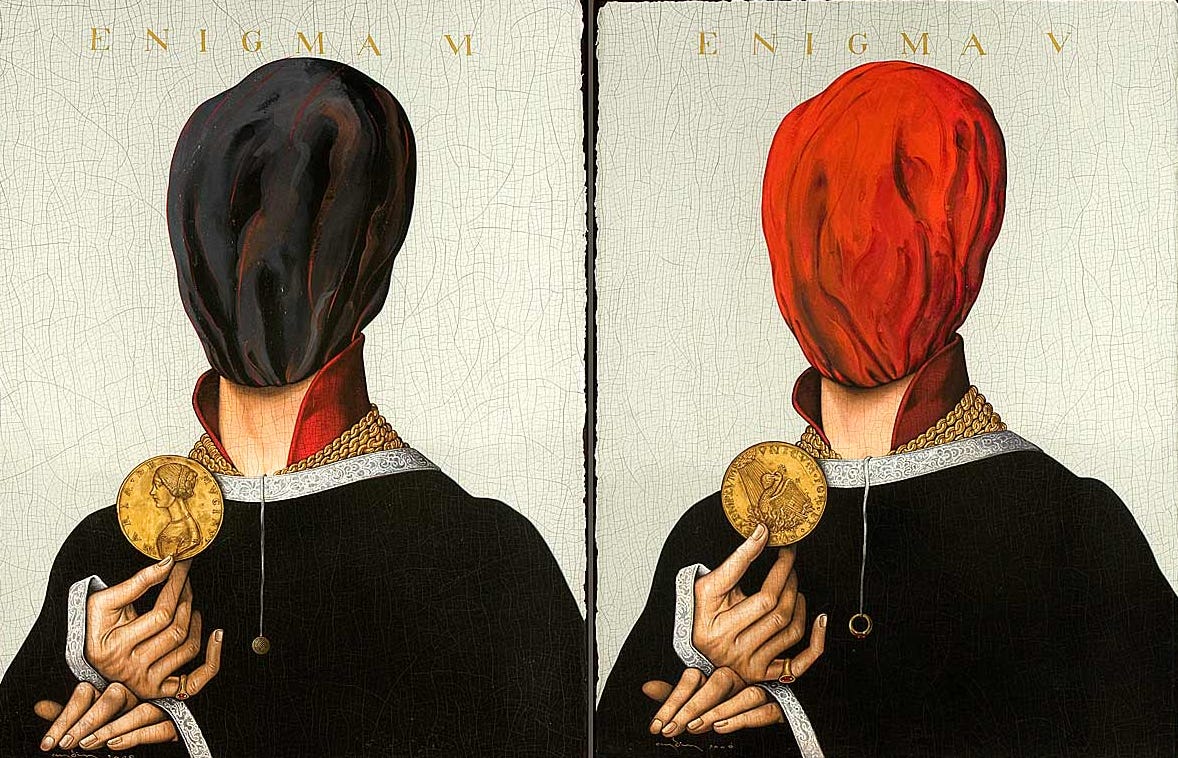



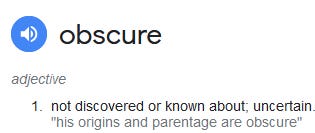
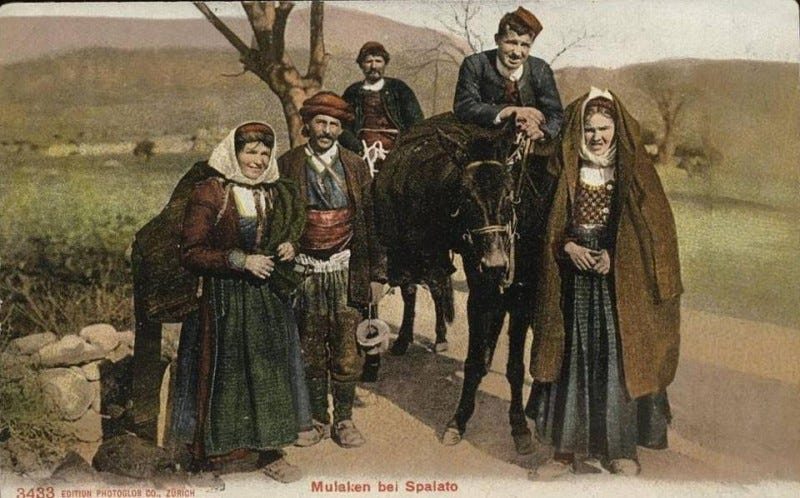
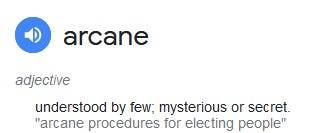
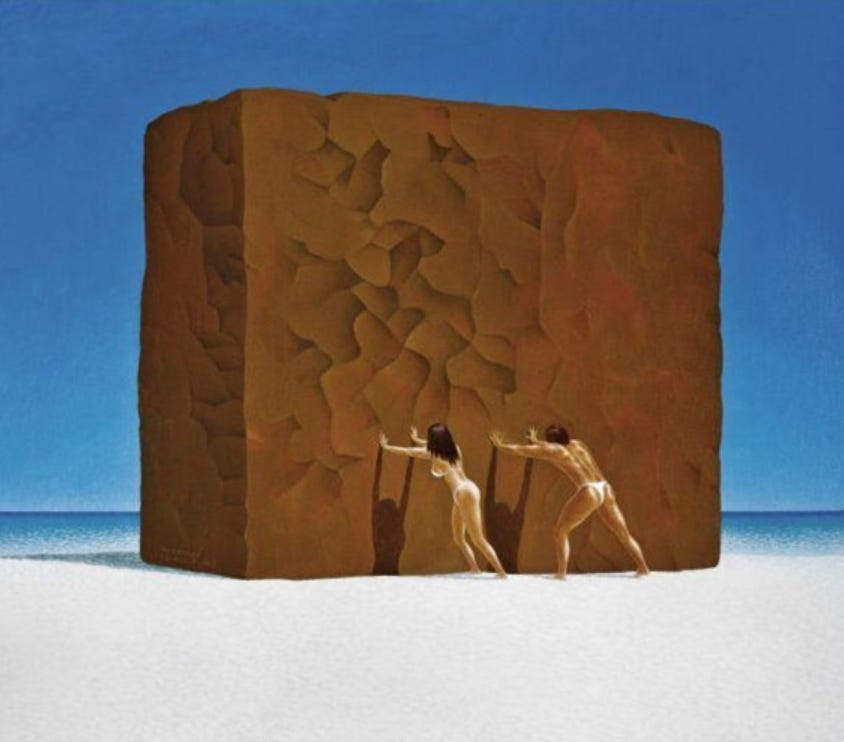
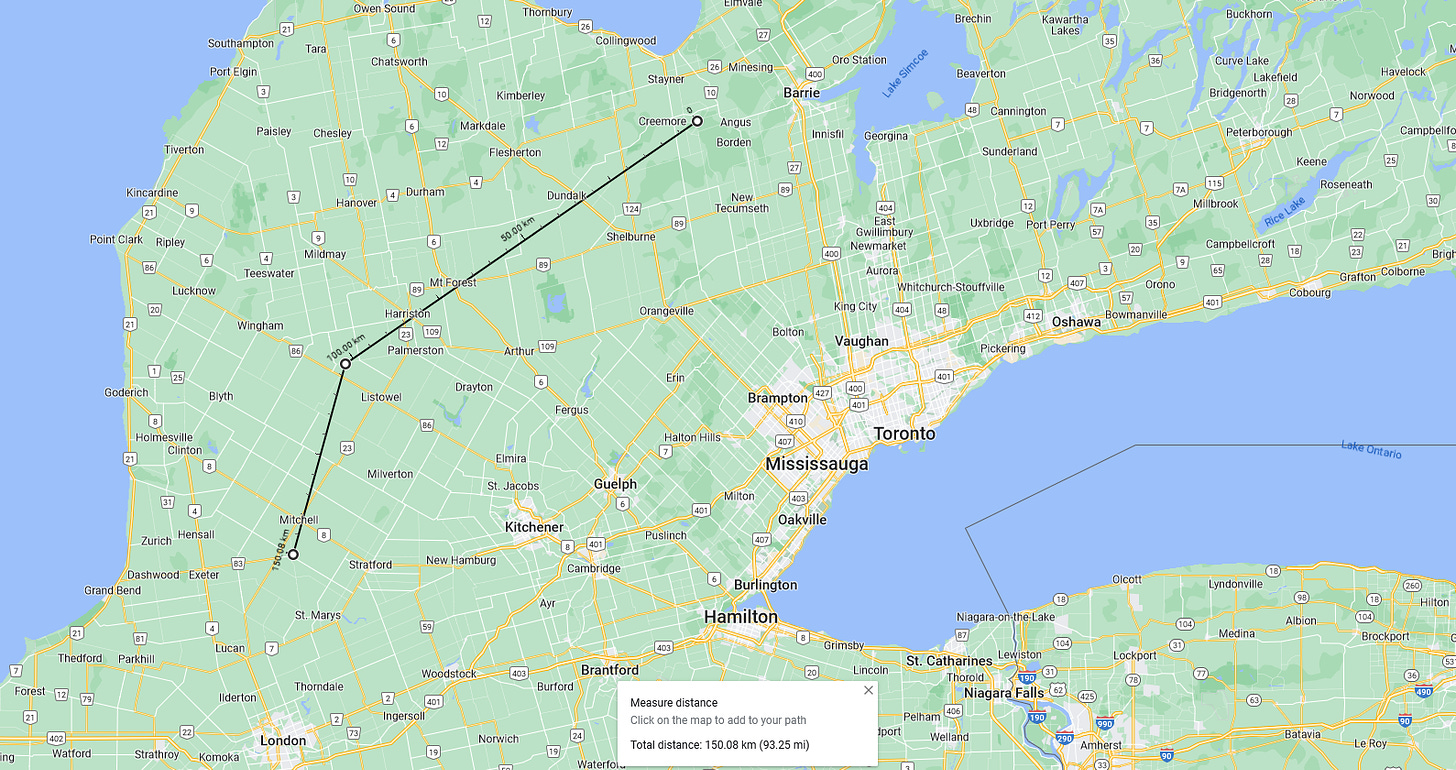
There are dozens more that I could have listed, but these will do for now.
Hit the like button at the top of the page if you enjoyed this entry. Share it on social media using the share button.
What are your niche/obscure/arcane interests? Let us know in the comments.
Homeopathy.
The idea that miniscule amounts of minerals and poisons and other organic materials can heal us...it's astonishing to me. And it has healed me and my family and my pets, again and again over a decade.
It hints at the fact that our model of reality is completely wrong. Our world is much more mysterious and beautiful and miraculous than we can imagine.